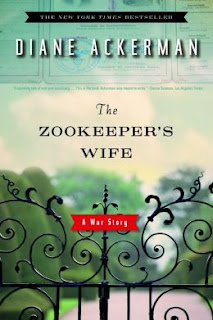Go Set A Watchman is the much-anticipated novel recently found by Harper Lee, the author of To
Kill A Mockingbird. Anyone who knows me knows that To Kill A Mockingbird is my all-time forever favorite book. So it was with trepidation that I waited to read it. Could it ever live up to To Kill A Mockingbird? Would I be terribly disappointed?
I finished Go Set A Watchman yesterday afternoon
and I haven’t stopped thinking about it.
It left me with many thoughts. I first read To
Kill A Mockingbird in 1962 when I was twelve years old. It had a profound effect on me and I have
probably read it ten times since, along with watching the movie several times
over the years. Reflecting back now, I
would say that Atticus has been my standard for a good man.
I will admit to having a little bit of difficulty with Ms.
Lee’ writing in Go Set A Watchman. There were often times that the writing was reminiscent
of To Kill A Mockingbird, but there were a few lines that I read over a couple of times because
I had no idea what Ms. Lee was talking about.
And then there was the “theme” of Atticus being a racist. That was very difficult for me. As I read the book, I wasn’t sure that I even
liked it. Until the end.
I don’t remember if the book states what the time period of
it is, but Go Set A Watchman was written in the mid-1950’s, so I am
assuming that is the time period. The
first half of the book is about life in Maycomb and Scout’s history there.
In the story Scout was a twenty-six year old woman who lived
in New York City. She had returned to
Maycomb, Alabama for a two week visit with her father, family and friends. Scout was met at the train station, not by
Atticus as expected, but by Henry Clinton, her lifelong friend and perhaps
future husband. This was indicative of
how Atticus’ health was-he wasn’t well enough to meet her at the station
because his arthritis was acting up.
Scout spent her first couple of days spending time with Henry
and visiting her uncle Jack Finch.
But her first Sunday afternoon in Maycomb changed everything
for Scout. And her life was turned
inside out as she struggled to make sense of it.
“Integrity, humor, and patience were the three words for Atticus Finch.”
Suddenly, Scout no longer believed those words. What she had always believed was:
“She did not stand alone, but what stood behind her, the most potent moral force in her life, was the love of her father.”
It seemed that it all came crashing down as she came to a
realization: Atticus was a racist.
The end of the book had me in tears.
I recalled an especially heated discussion with my beloved
grandfather in 1969 when I was nineteen years old and knew everything. We were discussing the Vietnam War, which I
was bitterly against. My grandfather’s
view was that “one fought and died for our flag” irregardless of views. What I heard was never mind any of the
reasons for the war, the politics of the war…just fight for the flag. I left in tears, because my grandfather
seemed to not be who I always thought he was.
We never spoke of that afternoon, but because of our love for each
other, we carried on and we still adored each other. It took many years, though, before I
understood his view.
“You never really understand a person until you consider things from his point of view... until you climb into his skin and walk around in it.” (from To Kill A Mockingbird)
My grandfather was born in 1907. He lived through two World Wars and the
Korean War, and though he did not serve in the military because of his age, his
life was certainly profoundly affected by the wars, and the patriotism that was
part of the culture. I had no experience
of that and did not understand it.
In this same way, I look at Atticus. He was born in the mid-1880’s in the Deep
South. When and where he was born and
raised was deeply affected by the end of slavery, the destruction of the South
and its economic demise.
This is in no way a defense for racism. Atticus was human and he had flaws. He lived
the best life that he knew. As Scout’s Uncle Jack told her:
“Every man’s island, Jean Louise, every man’s watchman, is his conscience. There is no such thing as a collective conscious.”
Which brings me to this: a month or so ago, there was a
contest sponsored by Waterstones in England to illustrate the above line from
the book. My son-in-law, Kelly Brasel,
entered and was one of ten artists who won.
His illustration was shown at a reception at Waterstones in London last
week. And though, he had not read the
book (it wasn’t released yet), I think he captured it perfectly.
There is Maycomb in the background with Atticus standing between Scout and Maycomb. Atticus couldn't be her watchman, but he could be the buffer. Love it!
I highly recommend the book to lovers of To Kill A Mockingbird. I haven't quite figured out how the book would stand on its own...I would love to hear from others what their thoughts are both about this issue and about the book in general. My personal thoughts: Well done, Ms. Harper Lee!





